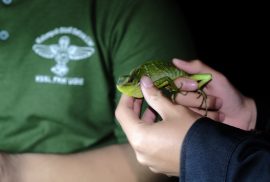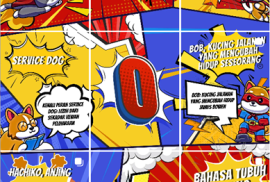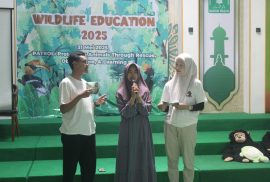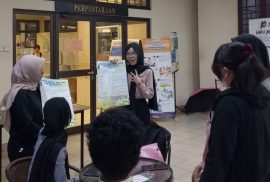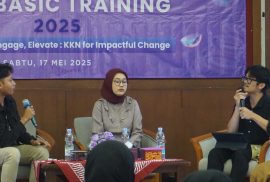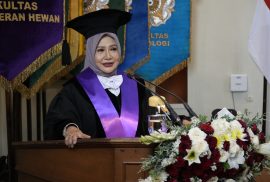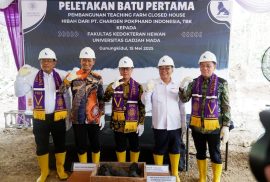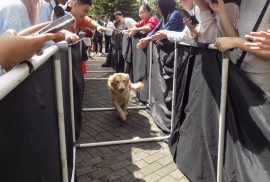The KSSL Weekend Getaway is an annual event designed to strengthen bonds among KSSL members while increasing awareness and knowledge about wildlife in its natural habitat. This year’s event was held on May 24–25, 2025, at Bella Plaza Lodge
SDG 15: Life on Land
Aware of Issue is one of the annual flagship programs initiated by the Department of Studies, Action, and Propaganda of BEM FKH UGM. This program serves as a platform for the Veterinary Medicine Student Family of UGM (KM FKH UGM)
On Saturday, May 17, 2025 at the Faculty of Veterinary Medicine UGM, the Pet Animal Advanced Study (PAAS) was carried out by Departemen Pendidikan of Kelompok Studi Hewan Kesayangan (KSHK) of the Faculty of Veterinary Medicine, Universitas Gadjah Mada.
Wildlife education (WEDU) is one of the program conducted annually by the Wildlife Study Group of the Faculty of Veterinary Medicine UGM to provide insights and concerns for the public regarding the importance of wildlife education in Indonesia.
Fun With Ruminant 2025, a work program from the Ruminant Division of the Productive Livestock Study Association (Himpunan Studi Ternak Produktif) Faculty of Veterinary Medicine Universitas Gadjah Mada, was held on Saturday, May 24th, 2025.
World Veterinary Day is a series of activities organized by the Student Family of the Faculty of Veterinary Medicine, Universitas Gadjah Mada to commemorate World Veterinary Day.
As an attempt to provide provisions to students who will participate in the upcoming KKN-PPM UGM activities, the Social and Community Department of the BEM FKH UGM has held a KKN Basic Training in the Auditorium and UP2KH with the theme "Empower, Engage, Elevate: KKN for Impactful Change”
Faculty of Veterinary Medicine, Universitas Gadjah Mada (FVM - UGM) has again inaugurated a professor, namely Prof. Dr. drh. Asmarani Kusumawati, M.P., in the field of Molecular Veterinary Reproductive Technology (20/5).
FoVM UGM is the first university to receive a Grant for the Modern Closed House Layer from PT. Charoen Pokphand Indonesia
“Easter Special” Dog Run is a collaborative activity between the Pet Study Group (KSHK) of the Faculty of Veterinary Medicine, Universitas Gadjah Mada and the Dog Run Community located in Yogyakarta.

